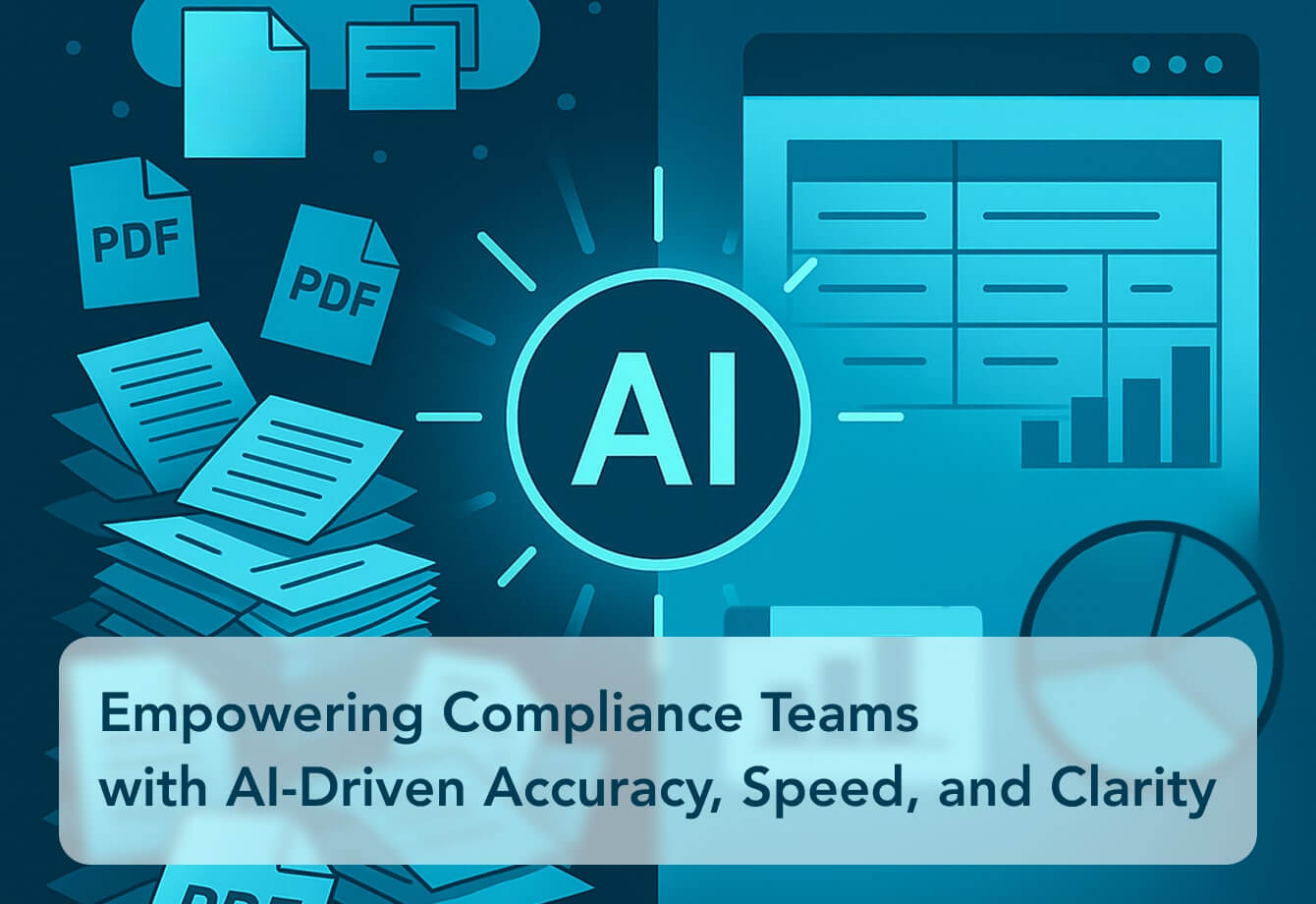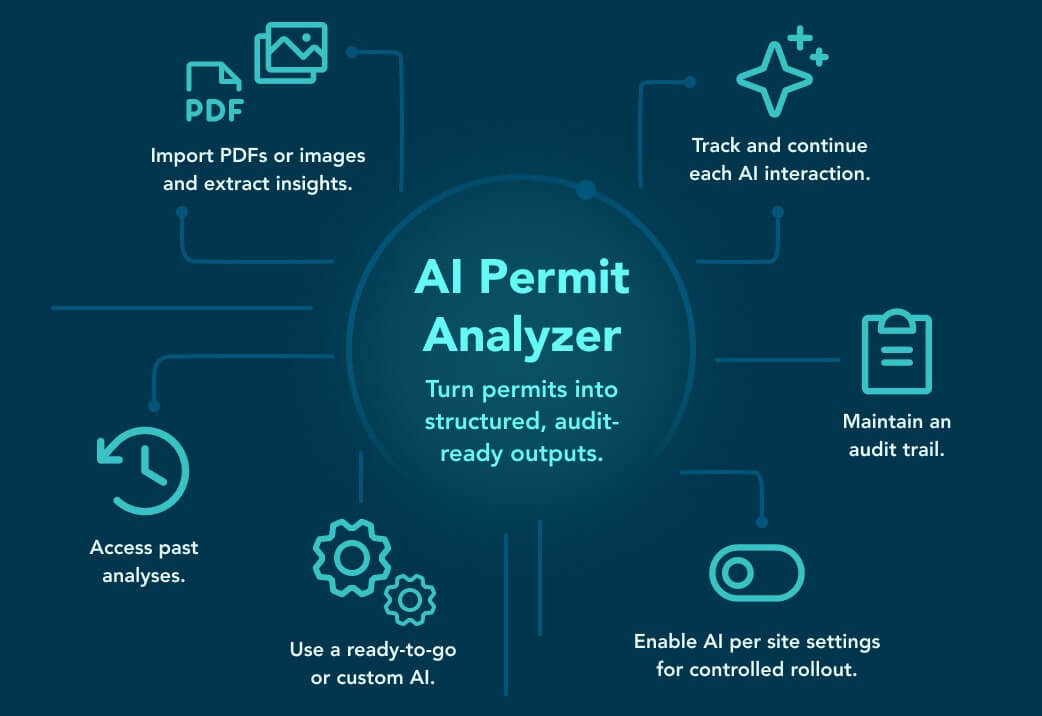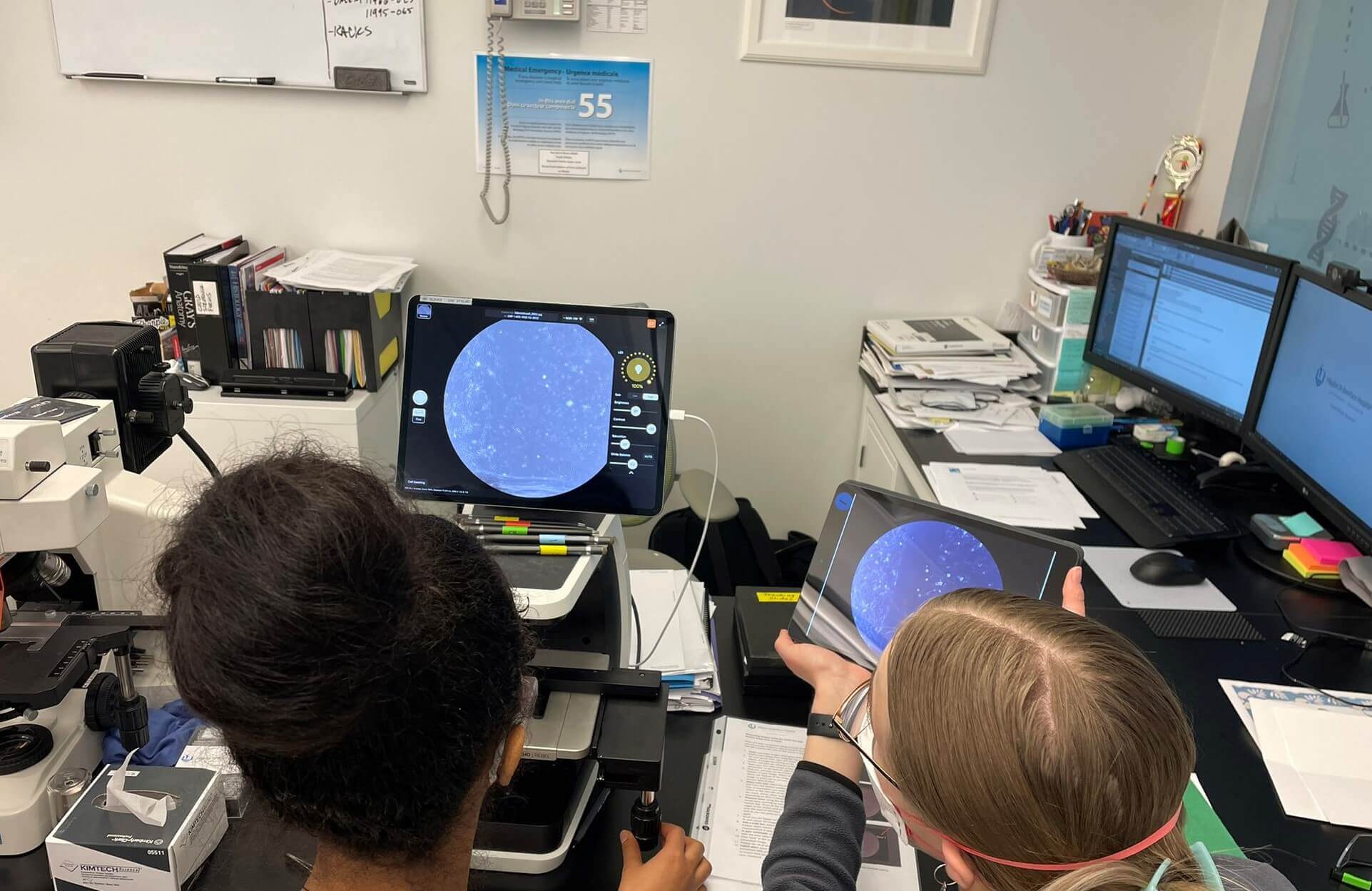Client: An established EHS vendor.
Challenge: Reviewing complex regulatory documents requires extensive manual effort and expertise, often spanning multiple days and yielding inconsistent outcomes. Each reviewer’s interpretation could differ, creating uncertainty and compliance risks. Without a unified workspace or structured record of past analyses, teams struggled to collaborate effectively or revisit previous findings, resulting in fragmented communication and inefficient workflows.
Solution: Softengi developed an AI-powered Permit Analyzer application that automates the extraction and interpretation of regulatory requirements from complex permit documents.
Current State of the Document Analysis and Regulatory Compliance Industry

In 2025, the use of AI for regulatory compliance is crucial because organizations are facing growing volumes of complex documentation, stricter regulations, and higher expectations for accuracy and transparency. Automating the analysis of permits and compliance materials allows enterprises to save time, minimize human error, and ensure consistent interpretation across teams.
According to PwC’s State of Compliance 2025 report, most enterprises are expanding their compliance budgets and adopting automation to keep pace with this growing complexity. Managing compliance data, however, remains a significant challenge. Research World found that approximately 80% of enterprise data is unstructured, stored in formats such as PDFs, scanned documents, and emails. This creates blind spots that slow analysis, increase compliance risk, and make consistent interpretation difficult.
As regulatory expectations continue to tighten, businesses face mounting pressure to demonstrate full auditability and transparency across all their decisions. Regulators now expect organizations to maintain clear, traceable records of how data is processed and how compliance determinations are made, in line with frameworks such as GDPR, ISO 14001, and EPA regulations, reinforcing the need for AI-powered systems that deliver structured, verifiable, and audit-ready insights.
Problem: Manual Permit Review Was Slow, Inconsistent, and Resource-Intensive
Organizations managing large volumes of environmental, safety, or operational permits face significant challenges in interpreting and applying regulatory requirements. These issues create bottlenecks, increase compliance risks, and slow down operational processes.
- Time-Consuming Analysis: Reviewing lengthy and highly technical permit documents requires expert attention. Each document can take hours or even days to analyze thoroughly. The complexity of regulatory language and the volume of supporting documentation make the review process labor-intensive and prone to human error.
- Inconsistent Interpretation: Different reviewers interpret requirements differently. Variations in understanding or experience lead to inconsistent compliance decisions, increase the risk of non-compliance, and result in operational delays. Organizations struggle to maintain a standardized approach, resulting in reduced overall efficiency in permit management.
- Limited Traceability: Once a permit is reviewed, there is no structured way to track the reasoning behind decisions or to continue discussions on specific requirements. This lack of traceability makes it difficult to revisit previous analyses, validate decisions, or provide documentation during audits.
- No Centralized Interface: Users lack a dedicated workspace to interact with AI tools, manage prompts, or access historical conversations and analyses. Teams rely on scattered documents, email threads, and ad hoc notes, which limit collaboration, slow response times, and reduce the ability to leverage insights across projects.
AI is capable of addressing these challenges by automating the analysis of complex permits, standardizing interpretations to reduce compliance risks, and keeping a structured, easily accessible record of decisions and discussions, making permit management faster, more accurate, and more reliable.
Solution: AI-Powered Permit Analyzer with Document Deconstruction and Conversational Memory

Softengi has developed a lightweight and intuitive Permit Analyzer application, integrated directly into the client portal, which enables users to upload permit documents and receive concise, structured outputs powered by AI. The solution offers the following capabilities:
- Document Upload and Prompting: Users can import PDF or image-based permits and guide the AI with custom prompts to extract targeted insights.
- Conversational Continuity: Each interaction is assigned a unique conversation ID, allowing users to revisit or continue discussions with the AI seamlessly.
- History Retrieval: All AI interactions are securely stored, enabling users to access past analyses and maintain a clear audit trail.
- Flexible AI Integration: Clients can choose to use a default AI service or bring their own AI (BYOAI) by configuring the URL, API key, model, and tuning parameters such as “temperature” and “top_p.”
- Secure and Configurable Access: AI functionality is controlled via a site-level setting (“enableAIintegration”), allowing for a phased rollout to pilot customers or availability for premium tiers.
The Permit Analyzer app provides a streamlined, secure, and highly configurable experience for managing complex permit documents, enhancing efficiency, traceability, and compliance.
Results
The game-changing solution transformed the client’s approach to managing regulatory documents, delivering speed, clarity, and strategic flexibility. AI accelerated compliance review by breaking down complex permits into clear summaries, tables, and bullet points in seconds, significantly reducing the time required for analysis.
At the same time, AI ensured consistent outputs, standardized interpretations to minimize human error, and eliminated ambiguity. Users retained complete control over the process, with the ability to customize prompts, export results in multiple formats such as Word, PDF, or TXT, and tailor the analysis to their specific needs.
The system’s modular design supported scalable deployment, enabling phased rollouts, pilot testing, and potential monetization strategies. Looking ahead, the platform was prepared to incorporate streaming responses, providing near-instant feedback and further enhancing the user experience.
PEOPLE ALSO READ

Universal Data Lake Publishing Service for Large-Scale Data Publishing
Softengi successfully implemented a data lake publishing solution that addresses EHS vendor's critical data transfer challenges.

Mental Well-Being Clinic for Virryhealth
Softengi developed a virtual clinic with interactive and non-interactive activities where visitors could schedule therapy sessions with medical experts and visit a VR chat in the metaverse to interact with the amazing nature and animals of the African savanna.

AI-Based Visual Inspection Case Study
Explore how businesses improve production control quality with Ionbond – an automated visual inspection, classification, and anomaly detection solution.

